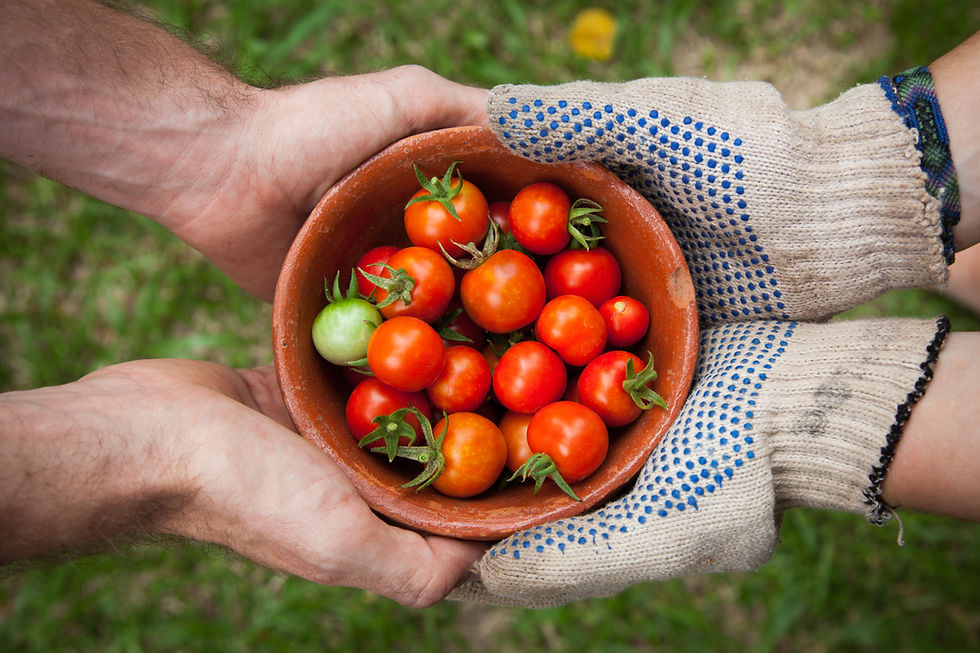Are you tearing your hair out at the idea of keeping your rambunctious little ones entertained this summer?
You might have signed them up for activity clubs or planned days out to theme parks, but these costs can quickly add up. And it’s hard to tire them out enough for a good night sleep at home.
But there is a solution. Have you tried getting them into gardening?
You’ll know the physical and mental benefits of horticulture if you’re cultivating your own garden. But did you know many of these also cross over to children – and there are even some added advantages for kids?
Here, we’ll cover why gardening is the best activity for your primary school-age little ones this summer and beyond.

Spending time outdoors
Being outdoors benefits us in so many ways. Fresh, clean air is good for our lungs, and just being outside can boost our mood and lower stress levels. According to environmental psychologist Lee Chambers, this is because being outdoors offers “a full sensory experience, which anchors us in the present moment and helps us feel connected [and] grounded.”
Our children are spending a lot of time staring at screens at the moment. 3-4-year-olds spend three hours a day on screens, and it rises through the age groups – four hours for 5-7-year-olds and an additional half hour for 8-11-year-olds. Encouraging them to get outdoors will hugely benefit their well-being, as overuse of screens has been linked to stunted cognitive development, poor sleep, and weak attention spans.
With outdoor play – especially when they have the opportunity to get their hands dirty – you can entice them away from their screens. The more time they spend outdoors, the more they’ll reap the mood and health-boosting benefits.
Physical activity
Kids under 11 have endless energy. And even if they’ve spent the day playing out with their friends, they could still be full of beans within a few hours. Gardening allows them to do more physical activity without it being overwhelming.
You can get your kids involved in so much more than planting and watering, depending on their age. These projects will be enough for nursery-age children, as well as fun activities including pulling weeds, picking dandelions and blowing their seeds away. As kids enter key stage 1, they can begin to take part in more labour-intensive activities like raking leaves, trowelling, shovelling, and digging to prepare your flower beds.
This type of physical activity is very different to their usual playtimes spent running around, and can strengthen their hearts, backs, and arms. Combining gardening with cardio activities means you’ll be able to keep your children fit and healthy in a well-rounded way.
Mental well-being benefits
Spending time in nature is one of the best things we can do for our mental well-being. So is physical activity, and it’s easy to see why gardening can boost us. Not only is spending time around greenery proven to reduce stress levels and improve life satisfaction, but the act of gardening builds on that by giving us a sense of responsibility. As children watch their plants grow, they get a boost of confidence in seeing the results of their hard work.

One study found that children who garden with their parents perform better at school. Gardening can stimulate an interest in a range of topics, from nature to biology. Your kids could become more inquisitive about the different types of plants, flowers, and food they can grow, and this can evolve into an understanding of why we grow certain plants.
Children have a natural curiosity – and they can explore so many avenues with gardening. Take some time to teach them about the wildlife and insects they may encounter while gardening or the different foods they can cultivate.
Healthier habits
If your children are growing fruits and vegetables, this is a great opportunity for them to adopt healthy eating habits. What better feeling for a little one than to tuck into the (literal) fruits of their labour after putting the hard work into growing them?
You can use your garden as an opportunity to introduce your children to new fruits and vegetables and allow them to explore new tastes. This can be especially helpful if you have a fussy eater – it’s much more tempting to eat something you’ve grown that looks a bit strange than to eat it out of a packet. It’s proven that kids are more willing to eat something they’ve grown themselves – and we know how hard it can be to get vegetables into them sometimes!

It doesn’t have to get boring and repetitive either – lean into seasonal fruits and vegetables to make sure your kids have something new to tuck into regularly. In the summer months, you can have a picnic in your garden and enjoy your harvests – be sure to pop it all in your backpack, so it feels like a fun and new activity for the kids.
Gardening is one of the best activities for boosting our physical and mental health, and the same goes for our children. But beyond that, it can stimulate their natural curiosity, teach them about the world, and even encourage them to try new fruits and vegetables. So why not get your kids to help you out with your horticulture? You and they won’t regret it.
Comments